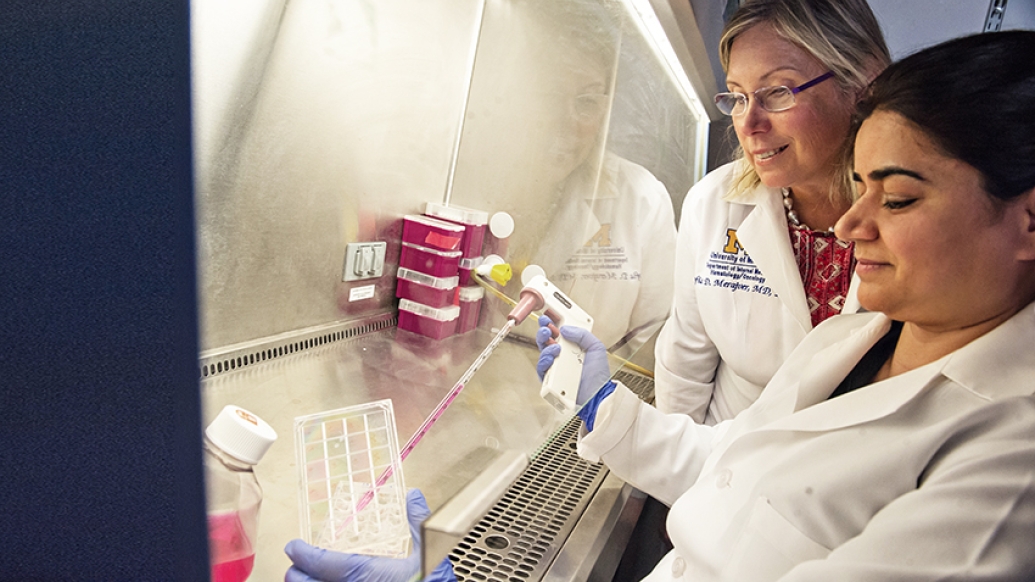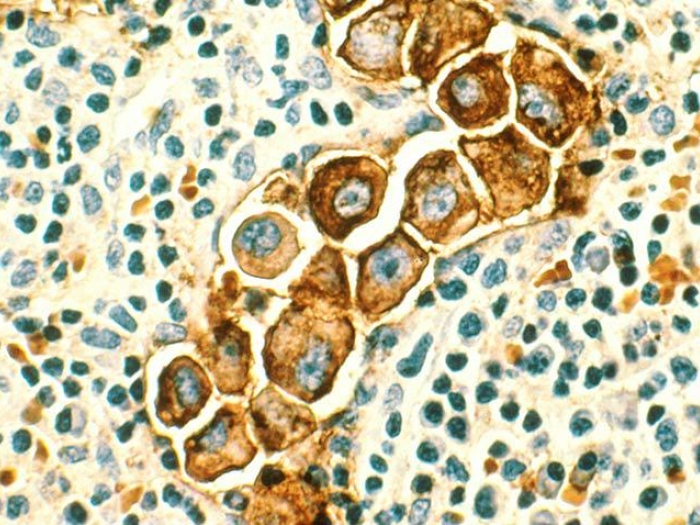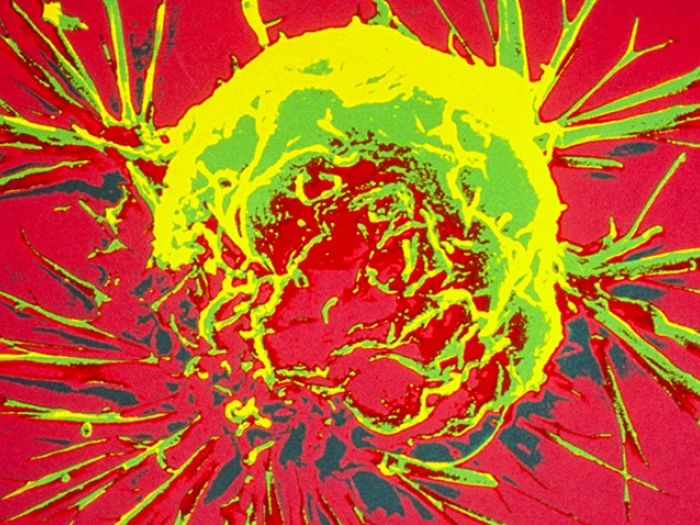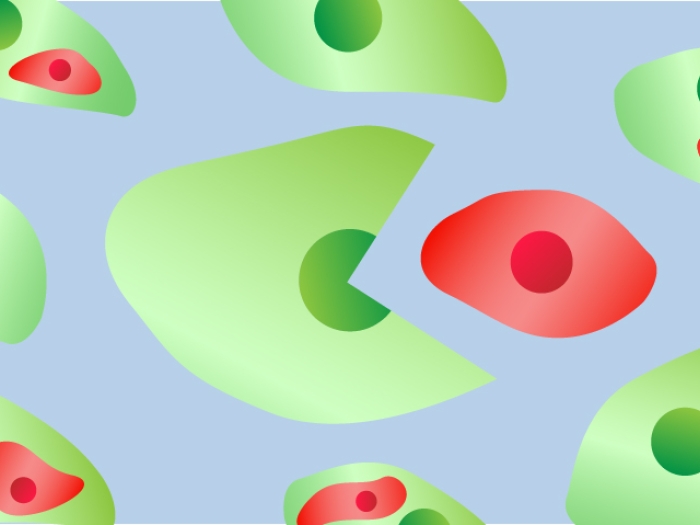An investigation from the University of Michigan could eventually lead to new therapies that take aim at the most aggressive type of breast cancer.
1:00 PM
Author |

Researchers at the University of Michigan have identified a promising new drug compound for targeting one of the most aggressive types of breast cancer.
The compound, currently called UM-164, goes after a kinase known to play a role in the growth and spread of triple-negative breast cancer. UM-164 blocks the kinase c-Src and inhibits another pathway, p38, involved in this subtype. The researchers found that the compound had very few side effects in mice.
"Triple-negative breast cancer is in dire need of new drugs. The treatments that have dramatically improved breast cancer outcomes don't apply to patients with this type of disease," says senior study author Sofia Merajver, M.D., Ph.D., scientific director of the breast oncology program at the University of Michigan Rogel Cancer Center.
This subtype of breast cancer is more aggressive than other types of the disease. Patients are much more likely to see their cancer recur and spread. Currently, there are no approved targeted therapies for triple-negative breast cancer, which represents about 20 percent of breast cancer diagnoses.
Triple-negative breast cancer is so called because it is negative for two hormone receptors and the HER2 protein — the three markers current treatments successfully aim for. That leaves chemotherapy as the only treatment option for this type of cancer.
"We are gaining a better understanding of the biology of triple-negative breast cancer, which is essential to developing targeted therapies," says study first author Rabia A. Gilani, Ph.D., a postdoctoral research fellow at U-M.
Scientists have been interested in c-Src because of its role in breast cancer progression and metastasis. But drugs designed to target c-Src have proven mostly ineffective.
The U-M team took a different approach.
'A promising target'
Although other c-Src inhibitors merely try to block the kinase, UM-164 binds to it and forces the kinase to turn off. Results of the study are published in Clinical Cancer Research.
"The reason our compound works is that we have a novel mechanism for binding the kinase. It has a response similar to removing the protein entirely from the cell, as opposed to only inhibiting the activity," says senior study author Matthew B. Soellner, Ph.D., assistant professor of medicinal chemistry at the University of Michigan.
In addition to blocking c-Src, the researchers found that UM-164 inhibited p38, another kinase pathway implicated in triple-negative breast cancer. By testing an existing c-Src inhibitor individually and then combining it with an existing p38 inhibitor, they found the combination was more effective. This work was done in cells.
"They're much better together than they are individually," Soellner says. "And with our compound, the outcomes were even stronger than with the existing drugs. We weren't trying to target p38, but it turns out to be a promising target in this disease."
The researchers found they could administer the drug to mice at a dose that was effective against the cancer and caused few side effects. More laboratory testing is needed to understand the safety profile of UM-164 before any clinical trials could be considered. The researchers plan to do additional safety testing in specialized mouse models based on tissue from patients.

Explore a variety of healthcare news & stories by visiting the Health Lab home page for more articles.

Department of Communication at Michigan Medicine
Want top health & research news weekly? Sign up for Health Lab’s newsletters today!




